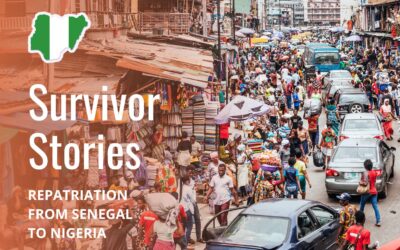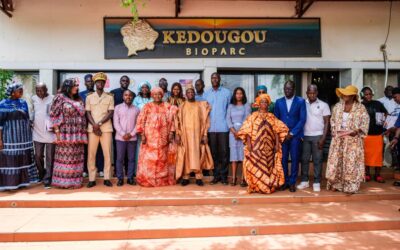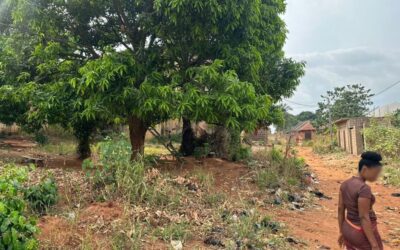A religious leader in a remote village in Kolda recruited three young brothers, only 7 and 8 years old, to go to urban Saint-Louis seemingly to learn the Quran. Many families in Senegal send their children to religious boarding schools, or daaras, in Saint-Louis, a dense city hundreds of miles away near the mouth of the Senegal River. Yet many hopeful religious students, or talibés, are forced instead into begging slavery. Rapid urbanization and crushing poverty have created a sad situation for child traffickers to exploit. Local religious leaders are often unwitting accomplices, recuriting children under the guise of holy instruction, but instead sending them to street begging gangs.
But this story has a happy ending. Our front-line partner ENDA (Environment Development Action in the Third World) educates local communities on the risks and realities of children falling into begging slavery. The very day these brothers were scheduled to go to Saint-Louis coincided with an ENDA visit to their village. The team shared information about the “Protect Our Children”—Aar Sunu Xaleyi—project. The initiative increases community resistance to child slavery through awareness-raising and preventive and protective actions.
Slaves in Plain Sight
Modern slavery is often hidden—poverty and ignorance make forced labor bondage a secreted crime and an invisible tradegy. But on the crowded streets of Saint-Louis, child slaves are everywhere. Traffickers force talibés and children as young as 5 years old into treacherous urban areas to plead for food, money, and other necessities. As helpless beggars, they face physical and sexual abuse, exposure to illegal drugs, car accidents, and drowning, among many other dangers and forms of exploitation. Many children simply run away—lost to the streets, alone and defenseless.
Even in the daaras, talibés may face unsanitary, unsafe, and crowded conditions, frequent and severe corporal punishment, sexual abuse, and the trauma of family rupture. Many enter adulthood deprived of education and utterly unprepared for employment.
Innovative Approach Saves Brothers, Supports Freedom
Aar Sunu Xaleyi traces trafficked children back to their community of origin. This innovative method proved crucial in protecting the three brothers from enslavement. The ENDA team shared real-life data and examples with the marabout who had organized their travel about the number of children from their specific community who had traveled to different daraas in Saint-Louis—only to find themselves trapped in dangerous living conditions
The marabout had a change of heart. He felt compelled to return the brothers to their village. The ENDA team also convinced the father of the three boys not to send them to Saint-Louis—he finally agreed to keep them with him in Kolda.
After further mediation and sensitization efforts, the marabout offered to join forces with local leaders to keep children close to home for religious instruction. By raising awareness on forced child begging, many children now stay with their families in Kolda and safely learn the Quran in local daaras.
The rescue of the three brothers shows villagers are receptive to our anti-trafficking message. Today the religious leader who once inadvertently abetted the trafficking of children into begging slavery welcomes and supports the “Protect the Children” project in his village. When communities are given the chance to unite and resist slavery, they do.
Our Model for Freedom
FTS is committed to freeing slaves, preventing enslavement, and telling survivor stories. We work to help communities build sustainable systems of freedom. Success stories like “Protect Our Children” prove our Community-based Model for Freedom works. Learn more about the Protect Our Children program on our Senegal webpage.
Editor’s note: This success story was reported by Fode Diop of ENDA in Senegal.



